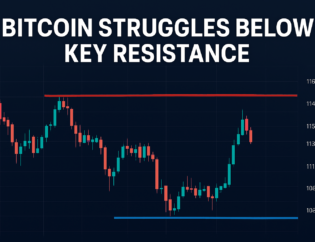
What to beware of when buying Ether this year
Ethereum has been the focal point of newspaper content and headlines lately, having proven performances as good as those in April 2022. It’s been a tough year for the crypto industry, but all the bad luck has vanished with the commencement of the new year, and now most crypto coins register gains.
Ethereum stands out, however, and even succeeds in outshining Bitcoin. It has hit a new 18-month high unregistered in the past two years, and crypto pundits and analysts are mainly betting on a surpassed price point of $3K later this year.
A spot Ethereum ETF is also making a lot of noise and attracting attention, making heads turn from Bitcoin, the hottest crypto in the industry, to the second-best one to date. Given the promising future that lies ahead, it’s only logical to search for the most reliable ETH price prediction or look into content teaching you how to buy cryptos like this one. An equally sound move would be to watch out for scams, misinformation, fake news, exaggerated speculations, and other factors that could hinder the success of your investment.
Cryptos with a slight twist
Many scams aren’t explicitly honing in on a cryptocurrency, but just taking advantage of it in order to garner money from targeted victims. These usually don’t take seasoned investors aback, including marketplace, employment, or romance scams.
Romance scams where paramours fall victim to malevolent actors are nothing new. Yet, the possibility of investing in crypto has also made room for such infractions with a twist. Unsuspicious partners may think they’re seizing an investment opportunity with crypto, particularly Ethereum and Bitcoin, since they’re the loudest, only to stumble across an unforeseen plot twist.
On the other hand, other common scams occur on marketplaces when an interested buyer requests a crypto payment for a supposed exhibited item. On the other hand, employment scams take the form of requests from the post’s issuer to be sent an initial amount of Ethereum or Bitcoin to join the training sessions, use software, or leverage any other services before they commence.
Regardless of the original approach, when being asked out of the blue to send Ethereum or any other cryptocurrency to an unexpected party, sleep on the idea until you’re sure it’s not a scam. Some scams, history proves, have prolonged for years until the swindlers obtained what they were after. If you ever fall victim to such an accident, you can report the case to the CFTC, SEC, or FTC.
Investment scams
Since no financial sphere doesn’t bring about its own risks, it’s crucial to look into the largest threats in the crypto sphere, as some of them may be confusing or even unfamiliar to many soon-to-be investors. “Rug pulls,” and exit scams are two of the most widespread hoaxes you can meet when navigating the crypto industry. The latter is easily understandable and, unfortunately, common, representing a popular concept in the DeFi (decentralized finance) world that represents a company’s wane after raising money with an ICO (initial coin offering).
Consequently, rug pulls are explicit exit scams on decentralized exchanges in the DeFi space and come down to freshly built coins listed on exchanges and potentially promoted this way. Once they attract buyers, the asset’s creators draw the project out and vanish with investors’ money.
Investment scams and malevolent actors working their way into people’s wallets exist in every space, so paying close attention to your safety when adding crypto to your wallet is crucial. Other common yet traditional scams include but aren’t limited to pyramid schemes, NFT scams, pump and dump, and Ponzi schemes.
Fake news and misinformation
Misinformation, pumped-up or fake news, unreal statements, information degradation, and other sources of misconducting data could hit investors immensely when actions are guided by hoaxes. Fake news has penetrated the crypto realm ever since Bitcoin broke into the market, but this shouldn’t be frightening or repellent. Fake news and clickbait naturally flood any field, especially those capturing plenty of attention.
However, it’s safe to say that some of the largest upcoming events are inevitably opening the path for fake news to seep in, sometimes as premature, false statements. The current news targeting the SEC’s final decision regarding the faith of spot Bitcoin ETFs in the U.S. represents a greatly exemplifying case. The news is both about rejections and approvals. As usual, once the first signs of an optimistic scenario broke in, investors jumped on the asset to profit from the acquisition later.
Other hugely impactful occurrence emphasizes the fake news around the same Bitcoin ETFs’ approval, this time happening in October of last year. As investors were waiting with bated breath for the SEC’s long-awaited endorsement of the financial products, a 10% BTC price improvement was registered by crypto charts.
Such unpredictable and unavoidable misleading content must be closely monitored and digested to minimize any chance of falling prey to the online space’s hoaxes.
Giveaway scams
Obviously, accumulating Ethereum doesn’t only come down to registering on your favorite crypto exchange to send orders and have the amounts transferred to your digital wallet. Other ways of entering ETH’s possession also exist and have made either victims or winners throughout time, depending on the case.
Crypto giveaway offers are nothing uncommon in the financial online space. One of the most memorable deceptions of all time occurred in July 2020 when rapper Kanye West, former NYC mayor Mike Bloomberg, and Joe Biden, among other VIPs, fell victim to a notorious hacking incident. Their compromised accounts became tools for hackers to disseminate misinformation and depict a misleading picture.
Such scams are anything but new, so being suspicious and reticent when crypto giveaways come your way is the wisest way to go.
To conclude
Unresearched investing, overstated price predictions, and the fear of missing out can also play with your rationale and make you blunder innocently. Pay substantial attention to anything that seems unreasonably suspicious, too good to be true, or far-fetched because chances are that those offerings are hoaxes in disguise.
Your discernment will, most of the time, indicate the correct path.










